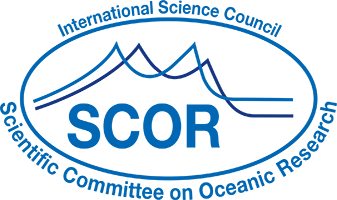We would like to inform you about the release of version 2019 of the Surface Ocean CO2 Atlas (previously known as version 7). The Surface Ocean CO2 Atlas (SOCAT) documents the increase in surface ocean CO2, a critical measure as the oceans are taking up one quarter of the global CO2 emissions from human activity. SOCAT version 2019 has 25.7 million quality-controlled surface ocean fCO2 (fugacity of CO2) observations from 1957 to 2019 for the global oceans and coastal seas. SOCAT is a community effort with more than 100 contributors worldwide.
The SOCAT website (www.socat.info) provides access to synthesis and gridded data products. Users can explore the data products via powerful, interactive online viewers, the Data Set Viewer and the Gridded Data Viewer. Alternatively users can download the synthesis and gridded products with code available for reading these files. The attached poster handout has further details on version 2019. Quality control criteria and data products used for SOCATv2019 also apply to versions 3 to 6 and are documented in an ESSD article (Bakker et al., 2016). Users are kindly asked to follow the SOCAT Fair Data Use Statement by generously acknowledging the contribution of SOCAT scientists by invitation to co-authorship, especially for data providers in regional studies.
SOCAT scientific community has made a Voluntary Commitment of ‘Annual, public releases of the Surface Ocean CO2 Atlas (SOCAT)’ to the UN Ocean Conference (#OceanAction20464). SOCAT enables quantification of the ocean carbon sink and ocean acidification, as well as evaluation of sensor data and ocean biogeochemical models. SOCAT represents a milestone in biogeochemical and climate research. SOCAT informs policy and high-profile climate negotiations. Maintenance and annual updates of the SOCAT product require sustained funding and community involvement.
We are already looking forward to SOCATv2020:
- SOCAT welcomes new contributors
- User feedback is essential for shaping future SOCAT products
- Data submission by 15 January 2020
- Quality control by 31 March 2020





 Please wait...
Please wait...